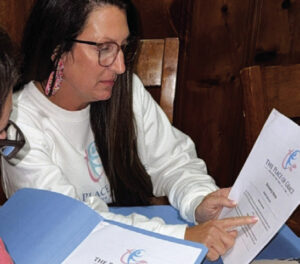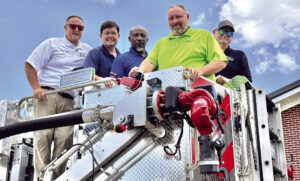Watching polls a poor substitute for leadership
By By Craig Ziemba
April 7, 2002
Craig Ziemba is a pilot who lives in Meridian.
According to recent polls, 82 percent of Americans think President Bush is doing a good job in the war on terror, 67 percent of Saudis think that Islamic extremists were not responsible for the attacks on Sept. 11 and 99 percent of us are grossed out over the Tri-State mortuary story.
Watch the news and you will have a chance to weigh in on instantaneous online polls whose results are published at the end of the show. It makes no difference whether you have any actual understanding of the question at hand, your opinion will be registered with the same gravity as if you were the world's foremost authority on the subject.
The media's fixation with polling is a curious phenomenon that has come of age in an era where the Internet links us together at the speed of light. The problem is that polls may or may not mean a thing, depending on how they are conducted. A pollster can achieve any result he desires based on how he words the question and whom he asks.
As an example, consider the oft-published public approval ratings of former President Clinton through his second term.
Questions such as "Do you think the country is headed in the right direction?" or "Are you happy with the way the president is handling the economy?" were repeatedly asked instead of "Do you think the president is truthful?" or "Do you care if the president took campaign contributions from Communist China?" Ambiguous questions tend to generate positive responses, whereas detailed questions might paint a different picture of the public mood.
Who you ask is as important as the question posed.
A year and a half ago, CNN polled dozens of people on live television from New York and the University of California at Berkeley to ask if they felt the election in Florida had been handled correctly. If they had asked the same number of Floridians and Texans the same questions, the answers would have been drastically different. Unless a nationwide poll is conducted scientifically with a proportional number of people based on population from all 50 states, it means nothing.
Polls are published for two reasons: to inform and to influence. Information is great, and we are all curious to see what the rest of the nation is thinking. Quite often, though, polls are intended to influence the reader.
No one wants to think of himself as out of the mainstream. If 72 percent of Americans say that a man's private life has no bearing on his public conduct, those who disagree may feel alienated and shift their stance. Studies show that undecided voters frequently vote for the candidate who is ahead in the polls increasing the temptation of pollsters to produce polls supporting their political agendas.
Elected politicians are especially vulnerable to the influence of polling. Quite often, they will postpone taking a stand on an issue until a poll has been conducted and the political consequences weighed. Listening to your constituents is great, but sticking your finger into the wind to know where to stand is a poor substitute for leadership.
The polled public is fickle. Leaders are people who inspire us and show us the way to go. History is full of men and women who stood against the tide of popular opinion and gradually led revolutions in thought that changed the world.
Our republic was designed so that voters could elect representatives they trust to do the right thing over the course of their term. Instead of watching the pools, they should vote their conscience.
If we aren't' happy with their representation, we an do something about it in the only poll that really matters the next election.













